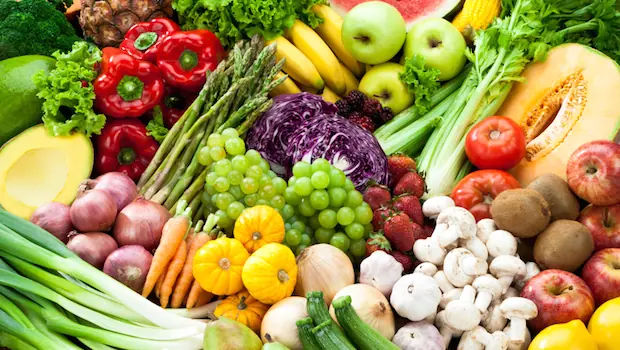
Feeling ashamed and embarrassed, people often "confess" they eat too few fruits and vegetables. They totally understand that fruits and veggies are good for their health and better than vitamin pills, but they can't figure out how to enjoy them more often—or how to get inspired to learn to like them. Sound familiar?
I know I should more fruit for snacks, but I just don't...
When hunger strikes, a piece of fruit is unlikely to be your snack of first choice because it is not very hearty. That is, calorie-dense apple pie with ice cream can easily be far more appealing than just an apple. One solution: plan to make the snack heartier by pairing fruit with protein. For example, enjoy an apple (or grapes) with cheese; smear a banana with peanut butter; or combine raisins with nuts. Would that boost the snack-appeal?
Nutrition Events Near You
More: 18 Energy-Boosting Fruits
How many fruits/veggies are enough?
Ideally, you should eat a fruit or vegetable at each meal. If you don't, won't, or can't do that, at least eat a pile of veggies with dinner to compensate for no produce at the other meals. You could also create a loaded smoothie at breakfast that has enough fruit (and vegetables) for the whole day. Other suggestions include:
Breakfast: Large banana on cereal; lots of berries in yogurt; tall glass of orange juice
Lunch: Extra tomato and spinach in a wrap; big bowl of fruit salad; large apple (with cheese) for dessert
Snacks: Tart cherry, grape or blueberry juice; banana (with peanut butter); dates; dried pineapple; V-8 juice
Dinner: Pre-dinner, munchies: baby carrots (with hummus), cherry tomatoes; At dinner: big pile of cooked veggies; extra-large side salad.
The more you eat, the more nutrients you get
Eight ounces of orange juice offers all the vitamin C you need for the day. So does one stalk of cooked broccoli and half a green pepper. Could you consume a taller glass of OJ, a bigger pile of broccoli, or munch on a whole pepper (like you'd eat an apple)? You'd consume double the vitamin C—plus electrolytes and many other health-boosting compounds.
What if I don't like kale...?
Although kale is nutrient-rich, it is not the only green vegetable with health-value. Here's how some green veggies compare, based on a 50-calorie cooked portion. (Note: "%" = % of the amount you should consume each day):
| Vegetable (50-calorie serving) | Vitamin A | Vitamin C | Calcium | Magnesium | Folate |
| Kale (1.5 cups) | 188% | 106% | 14% | 11% | 6% |
| Spinach (1.25 cups) | 167% | 30% | 30% | 63% | 82% |
| Broccoli (1.5 cups) | 16% | 125% | 6% | 10% | 40% |
| Asparagus (1.25 cups) | 16% | 23% | 5% | 10% | 83% |



